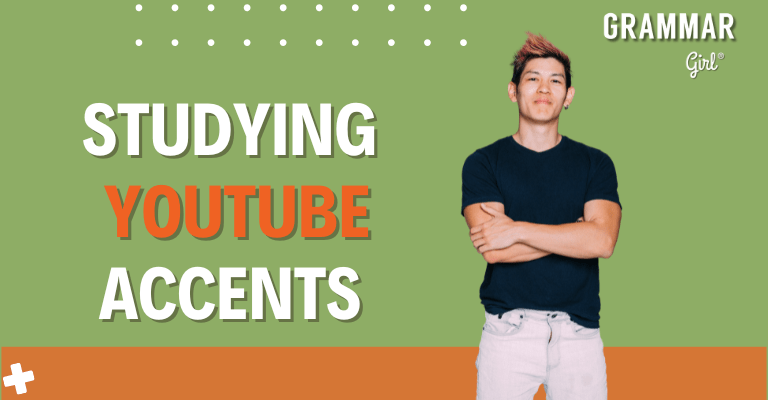When you think about your favorite YouTubers, you might notice how their style, content, and even their voice has changed over time. But have you ever wondered whether their accents change too — and why? Andrew Cheng, a linguistics professor at the University of Hawaii, looked at this possibility in his 2023 study on second dialect acquisition.
In a recent podcast, Andrew talked about his research, the politics of language and dialect, and why YouTube turned out to be a great way to study accents.
What is second dialect acquisition?
Second dialect acquisition happens when someone who grows up speaking one dialect picks up a second dialect after moving to a new place. Think of an Australian moving to the United States or someone raised in Boston relocating to Los Angeles.
“It’s really interesting to see to what extent people shift their dialects, if they do it consciously or unconsciously,” Andrew said.
‘A language is just a dialect with an army and a navy’
When it comes to distinguishing between a language and a dialect, Andrew says it’s not just about words — it’s about politics.
“The difference between what you call a language and a dialect is dependent on who’s labeling it and how much political power they have.”
For linguists, a more neutral term is “language variety,” which sidesteps the political baggage and focuses on the differences between how people speak.
Why YouTube offers a goldmine for linguists
Andrew’s approach to studying dialect change used a source that might surprising you: YouTubers.
Why? Because YouTubers, often vlogging for more than a decade, have unintentionally created a “longitudinal dataset” — a record of their voice over time. This allowed Andrew to track subtle pronunciation changes without needing a controlled lab study.
“If we just analyze their voices from their videos going back however many years, you instantly have a longitudinal dataset that can be used to analyze any changes in their voice over time.”
What the study revealed
Andrew looked at two YouTubers: one who moved from Hawaii to Nevada and another who moved from Boston to Los Angeles, and he found subtle but fascinating changes.
For example, the Boston YouTuber’s classic “ah” sound in “Boston” shifted toward the more Californian “aw” sound over time. Meanwhile, the Hawaiian YouTuber’s vowel sounds became less “Hawaiian” and more like Standard American English.
a lot of linguistic change and linguistic convergence — like when we change the way we speak — sometimes it’s so subtle that we don’t even notice until years down the road.
“A lot of linguistic change and linguistic convergence — like when we change the way we speak — it’s so subtle that we don’t even notice it until years down the road.”
Like much linguistic research, Andrew’s study focused mostly on vowels, which tend to show more variation between dialects than consonants.
Why do people change the way they speak?
So why do our accents shift when we move? Andrew says it often comes down to social factors.
“A lot of it has to do with prestige and how positively you evaluate people who speak a certain way.”
We subconsciously adjust our speech to fit in with those around us, especially if we admire or want to align with them. This adaptation can happen even when we’re not directly interacting — just hearing an accent frequently can influence how we speak.
The challenges of using YouTube data
Although YouTube offers rich material, it does come with challenges. As Andrew points out, you can’t control for factors like the “audience effect” — people speaking differently when addressing a large audience compared to chatting with friends.
“The way that I’m speaking now to you, or to the imagined future audience for the podcast, is definitely different from the way I talk to my students … or to my partner or to my friends.”
Despite these limitations, Andrew believes YouTube and other media are powerful tools for engaging the public with linguistics.
Where to find Andrew Cheng
You can follow Andrew on Bluesky at @LinguistAndrew, on Twitter/X, or by searching his academic profile at the University of Hawaii.
If you want to hear the full conversation, check out the Grammar Girl podcast wherever you listen!
And if you enjoy movies and language, check out an interview with Andrew Cheng from a few months ago where we talked about the language in some past and present Oscar nominees.




